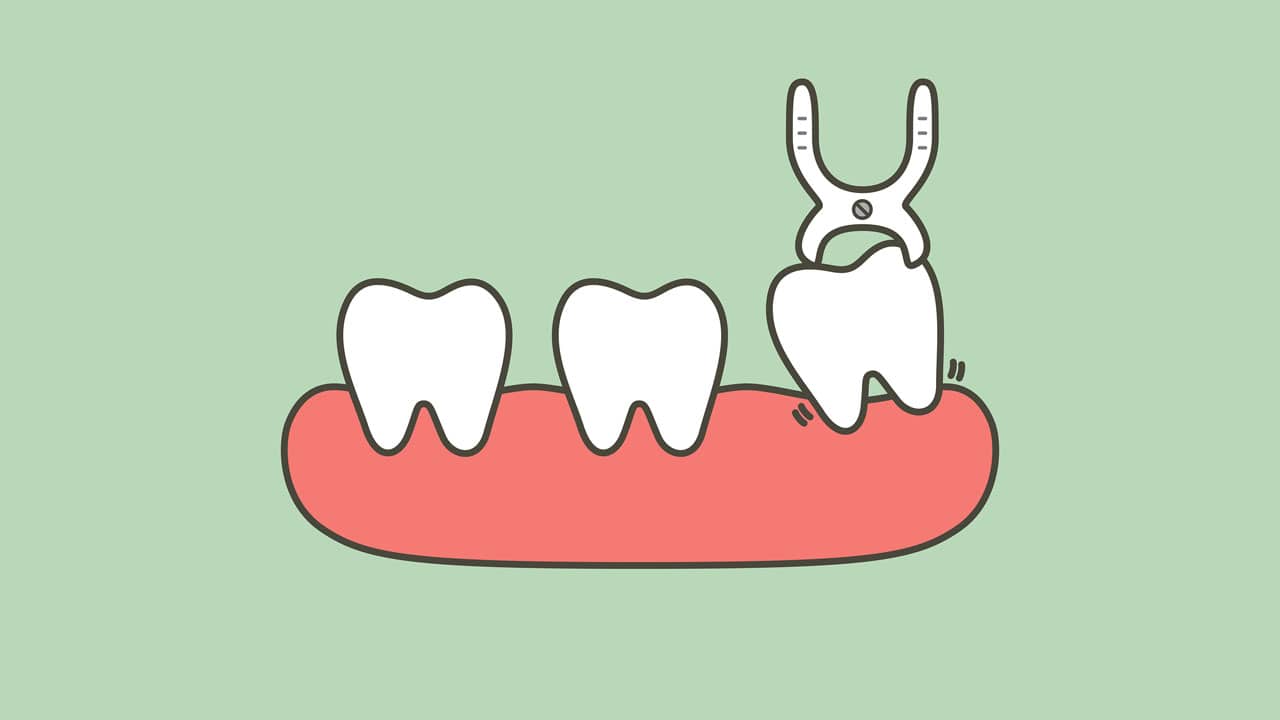
People have dental work done for all sorts of different reasons, and their needs will change over the course of their lives. One year you may find yourself coming in for a few cavities, but the next you may decide to venture in for a cosmetic procedure such as whitening or porcelain veneers. At some point in your or your child’s life, you may find that a tooth needs to be extracted for any number of reasons. In children, baby teeth are often removed to help make way for new, adult teeth. In adulthood, an extraction may serve a medical purpose, or it may be necessary to help fit new veneers or a bridge. Whatever the reason for a tooth extraction, your dentist will follow one of two procedures to remove the unnecessary tooth: simple or surgical extraction. If you’d like to know a bit more about the differences between these two procedures, read on for an extraction debriefing!
Simple Extractions
Simple extractions are relatively easy procedures that can be performed by your dentist in the office, requiring little to no major recovery time. This type of extraction is done on teeth that are clearly visible in the mouth, and not still hiding beneath the gums. After your dentist has thoroughly numbed the surrounding area, he or she will use a tool called an elevator to help loosen the tooth from its socket. After the tooth is sufficiently loosened, your dentist will use forceps to fully remove the tooth in question. Simple extraction is generally a quick procedure, and often multiple teeth can be removed at once if they need to be. Your dentist will instruct you on precautions to take after having your tooth or teeth removed, but you should notice little disruption to your normal habits other than a slight ache and a need to avoid certain foods for a few days!
Surgical Extractions
For teeth that aren’t visible in the mouth, a different approach will need to be taken. Sometimes teeth have broken, leaving only the root intact, and other times—like with most wisdom teeth removal—the tooth simply hasn’t erupted yet. Whatever the case may be, surgical extraction will be the best option for having it removed. Typically, a specialist known as an oral maxillofacial surgeon will perform your procedure, although some dentists are also trained to do so! During surgical extraction, your surgeon will make a small incision in your gum to access the tooth, then remove the tooth either intact or by breaking it into smaller pieces. Generally, surgical extraction can be performed with a local anesthetic, but sometimes general anesthesia is applied to make the process easier for patient and doctor. If you do remain awake during your procedure, you will feel slight pressure but no pain! Surgical extractions generally involve a more diligent aftercare routine in the days following your procedure, so be sure to check with your doctor about how best to care for yourself and your mouth.
Most people will need to have a tooth removed at some point in their lives and understanding the process will help you be better prepared!
If you have a question about extraction or would like to schedule an appointment with your dentist, give us a call Caputo Dental in Naperville today!